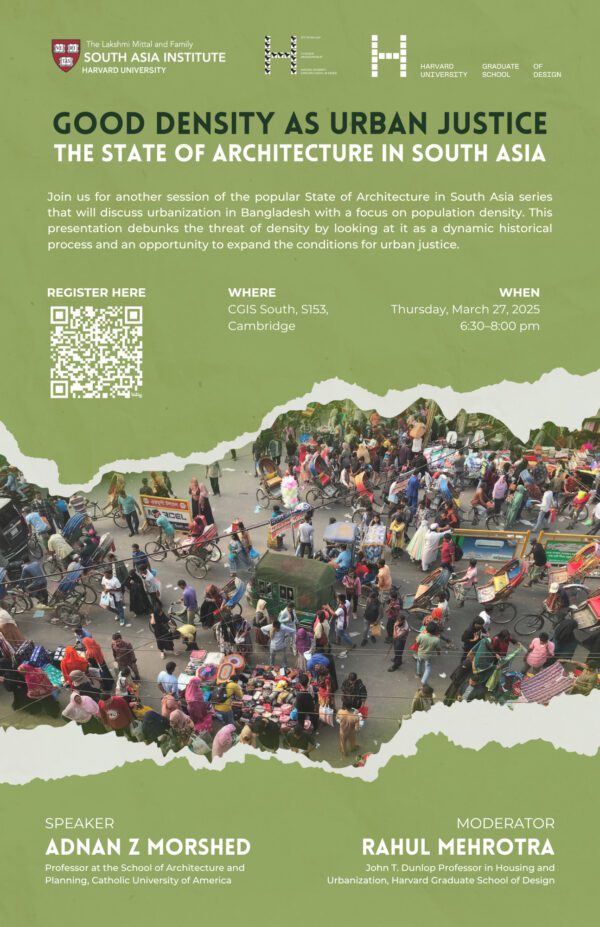Join us for another session of the popular State of Architecture in South Asia series that will discuss urbanization in Bangladesh with a focus on population density. Read a preview here.
Speaker: Adnan Z Morshed, Professor at the School of Architecture and Planning, Catholic University of America
Moderator: Rahul Mehrotra, John T. Dunlop Professor in Housing and Urbanization, Harvard Graduate School of Design
About the talk:
When Bangladesh began to experience accelerated urbanization from the late 1980s onward, there were three policy failures in understanding the promise of the density dividend:
- First, the country uncritically accepted a historical Western fear of population density while not taking into consideration late 20th-century South Asian urban realities such as ultra-dense conurbations, informal economy and settlements, middle-class mobility, and the threat of climate change.
- Second, policymakers and local governments ignored making a critical distinction between overcrowding and density, one in which overcrowding is viewed as a public-health problem, while density an opportunity for building a community-oriented and economically dynamic lifestyle.
- Third, the appreciation of density as a pillar of sustainable living was not factored into the city planning policies of Bangladesh.
Even though today density is no longer the old demon it used to be in western cities, the idea that “good density” in Bangladesh and South Asia could be a national asset, economic driver, and, most importantly, urban justice still appears counterintuitive.
This presentation debunks the threat of density by looking at it as a dynamic historical process and an opportunity to expand the conditions for justice. Urban justice can be strengthened by creating a healthy and equitable lifestyle based on resilient economic geographies, mixed-use and walkable neighborhoods, de-plotting residential land use, and reduced carbon footprint, environmental waste, and horizontal sprawl. Developing such a good-density way of life would require both an anthropological understanding of and technical solutions to disparate social and cultural constraints that prohibit the equitable growth of the city.
Using the lenses of Jane Jacobs, Henri Lefebvre, John Rawls, David Harvey, and Edward Soja, along with the experiences of Tokyo and Hong Kong, this presentation makes a case for good density in Dhaka, Bangladesh.

